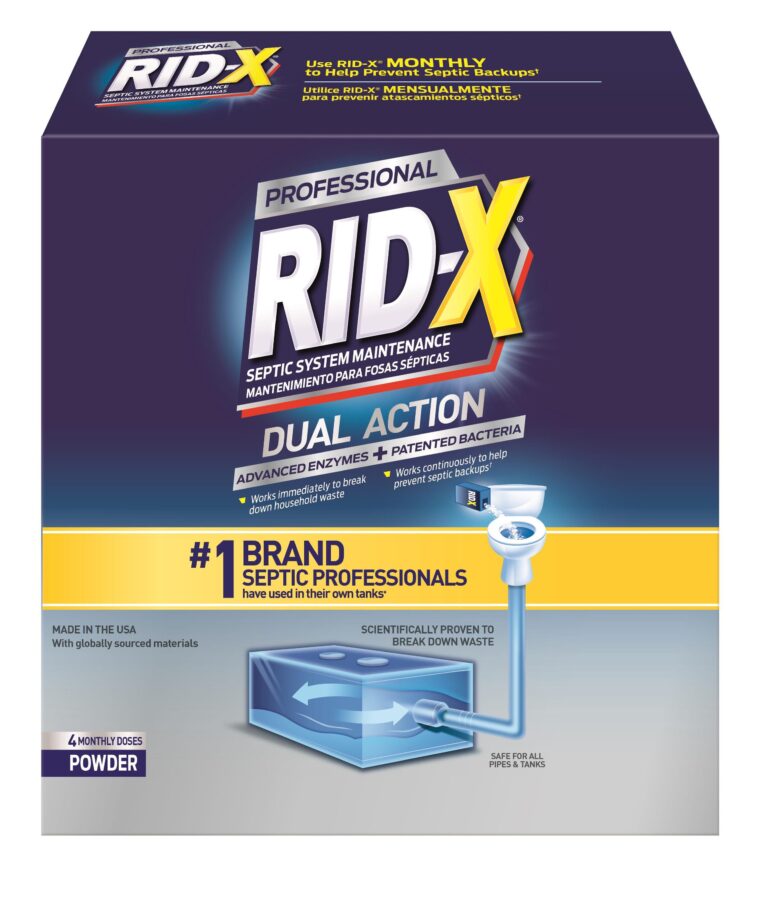How Long Does a Recharged Car Battery Last? Unveiling the Power Reserve!
A recharged car battery typically lasts between three to five years. A car battery is an essential component of a vehicle that provides electrical energy to start the engine and power various electrical systems.
Over time, a car battery undergoes wear and tear, resulting in a gradual depletion of its capacity to hold a charge. The longevity of a recharged car battery depends on various factors such as the quality of the battery, usage patterns, climate conditions, and maintenance.
Understanding the lifespan of a recharged car battery can help car owners plan for replacements in a timely manner, ensuring uninterrupted performance and avoiding unexpected breakdowns. We will delve into the typical lifespan of a recharged car battery, factors affecting its longevity, signs of a dying battery, and tips for extending its life.
Understanding Car Batteries And Their Lifespan
Understanding car batteries and their lifespan is essential for every car owner. Car batteries are responsible for powering the electrical systems of a vehicle, providing the energy needed to start the engine and run various components.
A car battery’s lifespan is greatly influenced by several factors. Firstly, the quality and construction of the battery itself play a significant role. Low-quality batteries may not last as long as high-quality ones. Moreover, extreme temperatures, both hot and cold, can also affect battery life. Heat can cause battery fluids to evaporate, while cold weather can decrease the battery’s capacity.
Regular charging is crucial for extending the lifespan of a car battery. Recharging helps prevent the battery from fully discharging, which can lead to irreparable damage. Proper charging techniques, such as using a smart charger, can also help maintain the battery’s condition and prolong its lifespan.
It’s important for car owners to be mindful of these factors and take necessary measures to ensure the longevity of their car batteries. Regular maintenance, periodic checks, and following manufacturer guidelines can all contribute to a longer-lasting car battery.
Evaluating The Average Lifespan Of A Recharged Car Battery
Car batteries play a crucial role in the performance and reliability of vehicles. Understanding the lifespan of a recharged car battery is essential for vehicle owners, as it helps them plan and prepare for replacements. Typically, the average lifespan for a recharged car battery ranges between 3 to 5 years, depending on various factors. These factors include the quality of the battery, driving habits, weather conditions, and the overall health of the vehicle’s charging system.
However, certain factors can decrease the lifespan of a recharged car battery. For instance, extreme temperatures, both hot and cold, can shorten the battery’s lifespan. Additionally, frequent short trips and constant use of power-consuming devices without proper recharging can also negatively impact the battery’s longevity.
Proper maintenance and care are also crucial for extending the life of a recharged car battery. Regularly checking the battery for corrosion, keeping it clean, and ensuring a secure connection can help prevent premature failure. Additionally, following the vehicle manufacturer’s recommendations for battery care and scheduling regular inspections can contribute significantly to a longer-lasting battery.
In conclusion, understanding how long a recharged car battery lasts allows vehicle owners to plan for replacements and take necessary steps to extend its lifespan. By considering the factors that can decrease battery longevity and prioritizing proper maintenance, car owners can ensure their batteries remain reliable and efficient for as long as possible.
Extending The Power Reserve: Tips And Tricks
The lifespan of a recharged car battery can vary depending on various factors. However, there are several tips and tricks to extend its power reserve and maximize its lifespan.
Implementing regular maintenance routines is crucial in ensuring the longevity of a recharged car battery. This includes keeping the battery clean and free from corrosion, as well as regularly checking for any signs of damage or wear. It is also important to keep the battery terminals tight and secure.
Utilizing smart charging techniques can also help in prolonging the battery’s life. Avoid overcharging the battery as this can lead to damage and reduced lifespan. It is best to use a smart charger that automatically adjusts the charging process to prevent overcharging.
Another tip is to avoid draining the battery completely. Regularly driving the car and allowing the battery to recharge helps in maintaining its power reserve. If the vehicle will not be used for an extended period, it is advisable to disconnect the battery or use a trickle charger to keep it topped up.
Signs Of A Dying Car Battery
Identifying the warning signs of a failing battery is crucial in ensuring that you are not left stranded with a dead car battery. There are several symptoms that indicate a weak power reserve and the need for a battery replacement.
Firstly, pay attention to how quickly your car’s engine is cranking. If it takes longer than usual for the engine to start, this could be a sign that your battery is losing its charge. Additionally, if you notice that the headlights are dimmer than usual or that the interior lights are flickering or not as bright, it is likely that your battery is on its last legs.
Another common symptom is a frequent need to jump-start your car. If you find yourself needing a jump-start event intermittently, it is a clear indication that your battery needs to be replaced. Likewise, if your battery is older than three years, it is advisable to consider getting a replacement, as battery lifespans typically range between three to five years.
The Role Of Extreme Temperatures On Battery Longevity
The longevity of a recharged car battery can be influenced by various factors, including extreme temperatures. Hot and cold climates can both have a significant impact on the lifespan of car batteries. In hot climates, the heat can accelerate the chemical reactions inside the battery, causing it to lose capacity over time. Alternatively, cold temperatures can make it more difficult for the battery to deliver the necessary power to start the car, resulting in decreased performance.
To protect your battery during extreme weather conditions, there are a few tips to keep in mind. Firstly, parking your vehicle in a shaded area or a garage can help prevent it from being exposed to excessive heat or cold. Secondly, ensuring that the battery is properly insulated, especially during winter, can help maintain its performance. Thirdly, regular maintenance, such as cleaning the terminals and checking the fluid levels, can help extend the battery’s lifespan. Lastly, using a battery charger or maintainer during periods of inactivity can help keep the battery in good condition.
Understanding the correlation between temperature and battery lifespan is important for maintaining a reliable vehicle. By implementing these protective measures, you can enhance the longevity of your recharged car battery and avoid unexpected breakdowns.
Maintenance Do’s And Don’ts For Optimal Battery Performance
Blog Post Title Heading Subheading 1Essential Maintenance Practices For Extending Battery Life
Content 1Battery maintenance plays a crucial role in determining the lifespan of your recharged car battery. A few simple yet essential practices can help you optimize its performance. Firstly, regularly check and clean the terminals and connectors to prevent corrosion. Secondly, ensure proper fluid levels by inspecting and refilling distilled water if necessary. Remember, overfilling can lead to electrolyte leakage. Thirdly, avoid deep discharging the battery as it can harm its cells and reduce its overall life.
Content 2Moreover, refrain from exposing the battery to extreme temperatures, as excessive heat or cold can negatively affect its capacity. Also, limit the use of electronic devices when the engine is off to conserve battery power. Additionally, avoid frequent short trips, as this prevents the battery from fully recharging. Lastly, use a battery tender to maintain an optimal charge level during extended periods of inactivity.
Subheading 2Common Mistakes To Avoid That Could Shorten Battery Lifespan
Content 3Several common mistakes can significantly reduce the lifespan of your recharged car battery. Avoid overcharging, as it can cause the battery to overheat and fail prematurely. Similarly, do not ignore warning signs such as dimming lights or difficulty starting the engine, as these might indicate an underlying battery issue. Do not leave vehicle lights or accessories on when not in use, as this can quickly drain the battery. Lastly, do not jump-start a completely dead battery without professional assistance, as it may cause damage.
Subheading 3Additional Steps To Take For Ensuring A Healthy Power Reserve
Content 4In addition to regular maintenance, a few extra steps can help you maintain a healthy power reserve in your recharged car battery. Investing in a high-quality battery can ensure optimal performance and longevity. Using a battery charger when needed can help avoid deep discharge. Additionally, turning off all interior lights, unplugging chargers, and removing any aftermarket electronics can prevent unnecessary drain when the car is not in use. Lastly, driving regularly can help keep the battery charged and functioning properly.
Advanced Techniques For Prolonging Battery Life
Recharging a car battery is a common task that every vehicle owner has to deal with at some point. But how long does a recharged car battery last? Well, the answer depends on various factors. However, by using advanced techniques, you can significantly prolong the lifespan of your battery.
One way to achieve this is by utilizing smart charging systems. These systems monitor the battery’s condition and adjust the charging rate accordingly, preventing overcharging or undercharging. This not only extends the battery’s life but also improves its overall performance.
In addition, there are innovative solutions available that can enhance the power reserve of a car battery. These solutions range from advanced battery chemistries to technologies that optimize the battery’s charging and discharging cycles. By exploring these new technologies, you can maximize the lifespan of your car battery and avoid the hassle of frequent recharges.

Credit: www.nytimes.com
Frequently Asked Questions For How Long Does A Recharged Car Battery Last
Is A Recharged Car Battery Still Good?
Yes, a recharged car battery is still good. Recharging restores its power, allowing it to function properly again.
How Many Time Can A Car Battery Be Recharged?
A car battery can be recharged multiple times, but its lifespan depends on various factors. Proper maintenance, usage, and charging techniques can help prolong the battery’s life. Regular recharging and avoiding deep discharges can maximize its durability. It is recommended to consult the manufacturer’s guidelines for the specific battery model.
Is It Better To Replace Or Recharge A Car Battery?
It is better to recharge a car battery instead of replacing it, as long as the battery is still in good condition. Recharging can extend its life and save you money. However, if the battery is old or severely damaged, it may be necessary to replace it.
How Long Does A Recharged Car Battery Last?
A recharged car battery can last anywhere from 3 to 5 years, depending on various factors such as usage, maintenance, and climate conditions. Regular maintenance and keeping the battery charged can help extend its lifespan.
Conclusion
The lifespan of a recharged car battery varies based on several factors such as the quality of the battery, driving habits, and maintenance routine. On average, a well-maintained battery should last anywhere between three to five years. However, it is essential to monitor and evaluate its performance regularly to ensure optimal functionality.
By following the recommended maintenance tips and being mindful of the battery’s age, you can maximize its lifespan and avoid unexpected breakdowns on the road.








